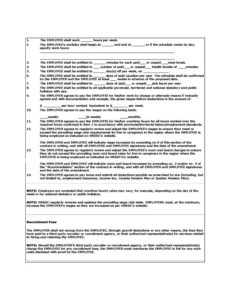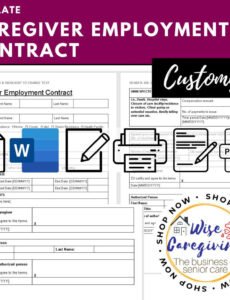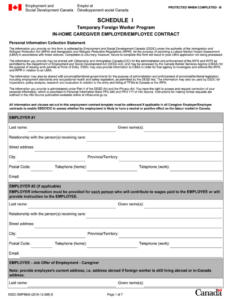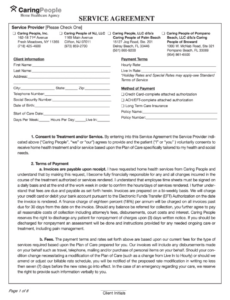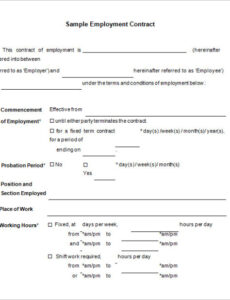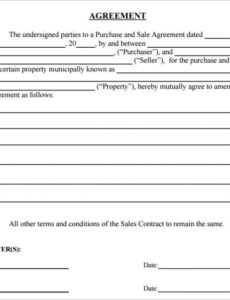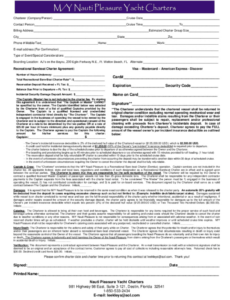Live in caregiver employment contract template, A contract is defined as a spoken or written agreement that is designed to be enforceable by law. Fundamentally, contracts are promises that the law will apply. The law of contracts is in the heart of most business dealings and is, consequently, one of the most significant areas of legal issue. Most contracts which may be carried out in one year can be either oral or written. Big exceptions include contracts involving the ownership of property and industrial contracts for goods worth $500 or even more, which must be in writing to be enforceable.
Generally speaking, a contract is an agreement between a few people, which creates an obligation to do or not do a thing. The agreement comes together with a list of rights and duties, bounding on the parties included. In the event the arrangement needs to be broken, there are provisions in the law for remedies. Contract laws protect both the legal aspects and implications resulting from the law. Contract laws determine whether or not a contract is legally capable. They also deal with other relevant things like whether you can find fraudulent measures involved or using processes which define how a contract is terminated.
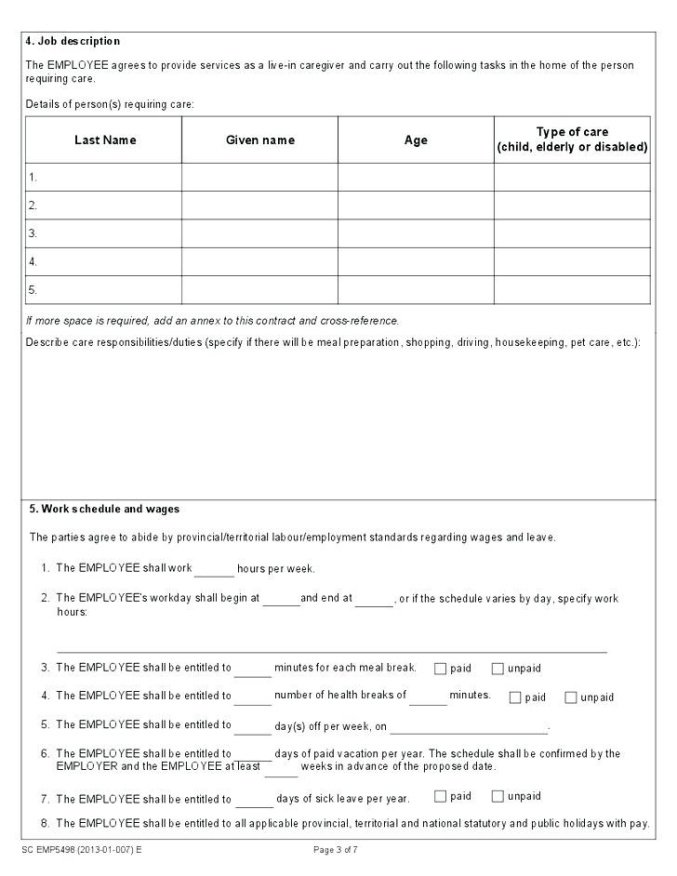
This isn’t the first book I would recommend or look to for the beginner wanting to draft a contract, nor will this book have sample contracts or types to multiple conditions. What this book does include is a alphabetical list of just about anything you can think of involving contracts. It is only a contract encyclopedia. (While it has definitions such as a dictionary sometimes, the entries tend to be much more like an encyclopedia than dictionary.)
Apart from the definitions, the book also has examples of contract provisions, including sample contracts, and sample clauses which you can add into contracts you are drafting. In some regions, Stim supplies a small extra information, like the seven pages online discussion. Apparently, there is quite a bit more to negotiation, you can fill reserve shelves with books on this topic, but it is nice to have a bit aimed at contract negotiation.
Most law firms, notably small law firms, find the use of contract attorneys for a fantastic way to maintain flexibility and enlarge their law company without hiring in-house, midsize attorneys. Firms are legally allowed to add a sensible surcharge into the fees of the typical attorneys. In a slowing economy, the use of contract attorneys helps give firms a competitive advantage, decreasing costs while increasing efficiency. As contract law becomes an increasingly bigger sector of law enforcement industry, attorney agencies have become more numerous. These are essentially businesses which find jobs for lawyers to do and take a little fee for their services. Some companies who use contract attorneys prefer to go through these agencies because they (the agencies) need a particular caliber and professionalism from the lawyers that they signify.
